Trail of the Vigilantes (1940)
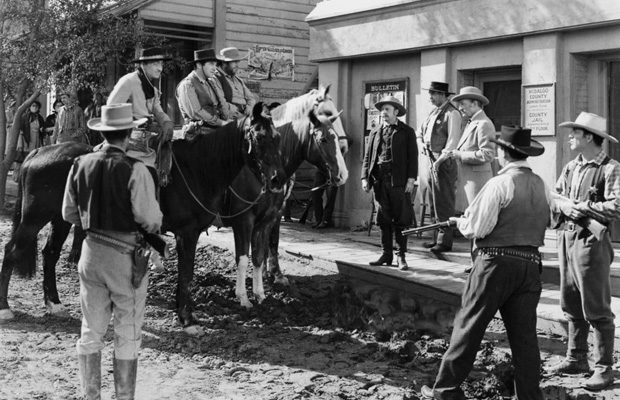
Toronto Film Society presented Trail of the Vigilantes (1940) on Sunday, January 10, 1988 in a double bill with Winchester 73 as part of the Season 40 Sunday Afternoon Film Buffs Series “A”, Programme 6.
Production Company: Universal. Producer and Director: Allan Dwan. Screenplay: Harold Schumate. Art Director: Jack Otterson. Costumes: Vera West. Photography: Joseph Valentine. Editor: Edward Curtiss.
Cast: Franchot Tone (Tim “Kansas” Mason), Broderick Crawford (Swanee), Peggy Moran (Barbara Thornton), Andy Devine (Meadows), Warren William (Mark Dawson), Mischa Auer (Dimitri Bolo), Porter Hall (Sheriff Korley), Samuel S. Hinds (George Preston), Charles Trowbridge (John Thornton), Paul Fix (Lefty), Harry Cording (Phil), Max Wagner (Joe).
If one were to believe the entry in Clive Hirschhorn’s respected The Universal Story, Trail of the Vigilantes is so modest a Western that it rates no more than a three-line entry among the also-rans of Universal’s 1940 “B” productions. If, however, one turns to the reviews of the day and to some more serious studies of the genre, one gleans an entirely different impression of this film’s importance. For Trail of the Vigilantes was recognized by some of its reviewers as an admirable example of the comic Western, a relatively rare genre which has as an immediate ancestor Destry Rides Again (1939) and as a distant descent Mel Brooks’ Blazing Saddles.
The plot of the film is a familiar one to Western watchers. A man from the East comes west as an undercover agent to investigate the disappearance of the man whom he is replacing as marshal. The inexperience of this eastern hero lends itself to the serious business of identifying and punishing the villain. In fact, a highly praised episode is one where most of the unlikely cast (including Mischa Auer as a transplanted Russian cossack) find themselves involved in retrieving a calf from a mudhole. In this unpretentious little movie from the studio of Abbott and Costello and Ma and Pa Kettle, dignity is hardly one of the goals.
The comic elements did not appear in the film’s original script. It was only when three scenes had been shot on location that producer-director Allan Dwan recognized that his screenplay did not have the makings of a particularly good drama. So back at the studio a writer took a few hours to adjust the script into the same story done with a tongue-in-cheek approach. As Dwan told Peter Bogdanovich in 1971, the characters who were originally supposed to be rough, tough murderers became fore the most part just clowns. The actors soon caught on that the film was meant to be humourous, and went zestfully along with it. Variety, however, argued that the film would have had much greater box-office potential if its comic aspects had been signalled in advance through a change in title or some early comic coding.
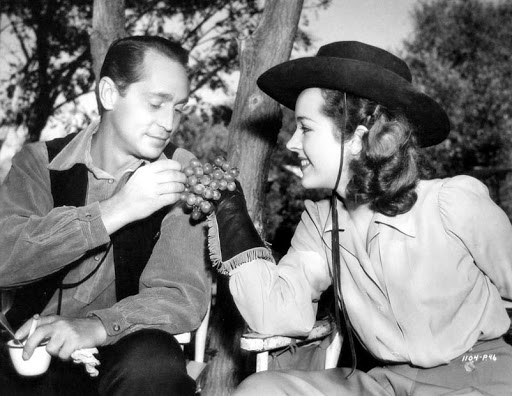
Advance publicity for today’s screening touted the fact that director Allan Dwan was born in Toronto. One should not, however, allow oneself to be carried away by Dwan’s Canadian connection. For while this durable director was indeed born in Toronto in 1885, his family moved to Chicago in 1893, never to return significantly to Canada again. In 1913, when Dwan was directing his 40th one-reeler, he suddenly fell under the influence of D.W. Griffith’s versatility with the camera and film editing. Today, some film historians are ready to place him only slightly behind Griffith and DeMille among the major filmmakers of the American silent cinema. During the period, his most important titles were probably Robin Hood (1922) and The Iron Mask (1929), both with Douglas Fairbanks. In the sound period, Dwan found himself most often working on low-budget films, but some of these–such as the farces Up in Mabel’s Room (1944) and Brewster’s Millions (1945)–are indeed memorable. His only two big-budget films were Suez (1938) and The Sands of Iwo Jima (1949). Dwan died in 1981 at the age of 96.
Franchot Tone (1905-1968) was in 1940 returning to Hollywood after a second stint on the Broadway stage. He had made a name in the movies in important roles in Mutiny on the Bounty, Lives of aBengal Lancer and Three Comrades. In 1940, fresh from a divorce from Joan Crawford, he was hoping to combine some of the prestige of his earnest theatrical activities with some crass Hollywood-earned dollars. But in spite of some favourable reviews for Trail of the Vigilantes, Tone was never to regain the success of his earlier Hollywood years.
Among the other players, Broderick Crawford eventually was to achieve major stardom, gaining an Academy Award for All the King’s Men (1949). Warren William is best knwon for playing Philo Vance and Perry Mason in several B movies. Mischa Auer is remembered for his roles in the screwball comedies (My Man Godfrey and You Can’t Take It With You), and Andy Devine, the veteran Western sidekick, acquired that distinctive voice in a childhood accident.
Notes by Cam Tolton

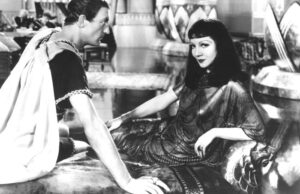
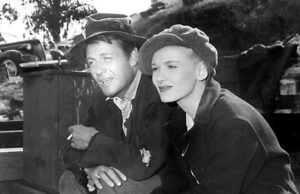
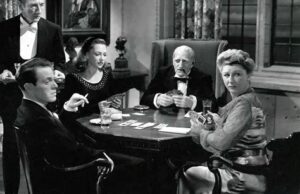






Leave a Reply